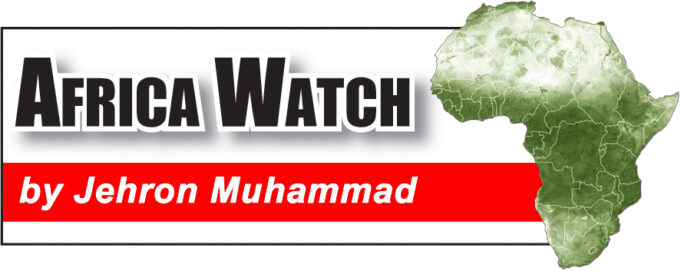KHARTOUM, Sudan—Nothing says diversity like Sudan. Once Africa’s largest country, now divided by neocolonial and neoliberal machinations the U.S. help to engineer, it’s separated as North and South. But Sudan enjoys a rich cultural and ethnic religious heritage. Those things have endured despite economic and political turmoil as Sudan retains its sense of authenticity.
Sitting in a cafe here with documentary film maker, journalist and activist Alsanosi Adam, who by the way has two graduate degrees in media studies from the Berkeley School of Journalism, we discussed the Sudanese people and “identity issues.”
Adam said, “To me being Sudanese means connecting with the culture and the traditions that we hold dear. I’m a second generation Sudanese, so (it) means the world to me to be a part of this great country.”
What Adam says next, in his passion and in its substance, destroys Western media identification of Northern Sudanese people as “Arabs.”
“To be actually a Sudanese, if we ever talk about the fact we have identity issues, I see them as identity differences,” he said. “Because we are a melting pot. We are an African nation with some mixture of Middle Eastern and some Turkish and European blood. But in the end, we all drink from the Nile (River). We are one people.”
And, as one writer aptly noted, “Speaking Arabic does not make you an Arab.”
My Sudanese wife’s uncle also recently said, during a meeting that included family elders, “Our cross pollination with those that identify as Arabs, and our adopting some of their cultural traditions, did not mean we lost our identity as Black Africans.”
In addition, nowhere on the continent are pyramids a truer reflection of Black African civilizations than in Egypt and Sudan.
Adam’s remarks are a testament to Black American scholar W.É.B. Du Bois’ 1940 book “Black Folks Then And Now,” where he destroys Western imperialist notions of Sudan being Arab and not Black.
What Adam reveals about Sudan, DuBois as head of the Department of Sociology at Atlanta University, contextualizes as Africa. He responded in 1943 while being interviewed: “Africa is the ‘Ethiopia’ of the Greek, the ‘Kush’ and the ‘Pint’ of the Egyptian and the Arabian ‘land of the Blacks.’ To modern Europe it is the ‘Dark Continent’ and ‘Land of Contrasts;’ in literature it is the seat of the Sphinx and the lotus eaters, the homes of the dwarfs, gnomes, and pixies, and the refuge of the Gods; in commerce it is the slave mart and the source of ivory, ebony, gold and diamonds. No other continent can rival this ancient of days.”
Sudan, like other nations, has been historically plagued by American and European powers meddling in the “scramble for Africa.” In 2007, while sitting in the courtyard outside my hotel room in Khartoum, I was warned of the divisions within the SPLM, the Sudan People’s Liberation Movement which fought for an independent South Sudan.
During an exclusive interview with Dr. Wani Tombe of the political daily Advocate newspaper distributed in Southern Sudan and Sudan proper warned, if the South secedes there will be a civil war in the South and there was just war between the North and South. Dr. Tombe is from the Southern region in Juba. “There is going to be a very bloody civil war between the Southern Sudanese themselves,” he predicted in 2017. His predictions have come true with war raging between different factions in South Sudan, since its independence in 2011.
In retrospect, North and South Sudan, then Africa’s largest nation state in geographic size, was a marriage complete with all the conflicts, disagreements and fights inherent in a marriage. But with reconciliation, the relationship could have worked with landlocked Southern Sudan, home of oil and mineral wealth, using the North’s infrastructure, pipeline and ports to ship oil to market.
On gaining “independence,” South Sudan had no oil industry infrastructure and no ability, nor the wherewithal, to build such. In effect it was doomed from the beginning and Dr. Tombe’s predictions made in 2017 were prophetic. American government officials, who largely engineered the separation, were false prophets with their so-called Comprehensive Peace Agreement promising development aid and a peaceful transition only to deceive. Note: The separation resulted in Northern Sudan losing over 50 percent of revenue from oil and left Southern Sudan without infrastructure and with conflict between its tribes and ethnic groups.
Adam also talked about Sudan’s rich Islamic history and traditions. He said the Abyssinian King Al-Negashi who facilitated Islam’s first migration or Hijra used the region now known as Sudan as a safe haven from those opposing the Muslims.
Adam noted that Abyssinia not only included Eritrea and Ethiopia but also parts of Sudan. Prophet Muhammad (Peace Be Upon Him) also sent a second letter—the first letter was a request for safe haven of his followers—which encouraged King Al-Negashi to accept Islam. He accepted and became a Muslim ruler.
Follow @jehronmuhammad on Twitter.













